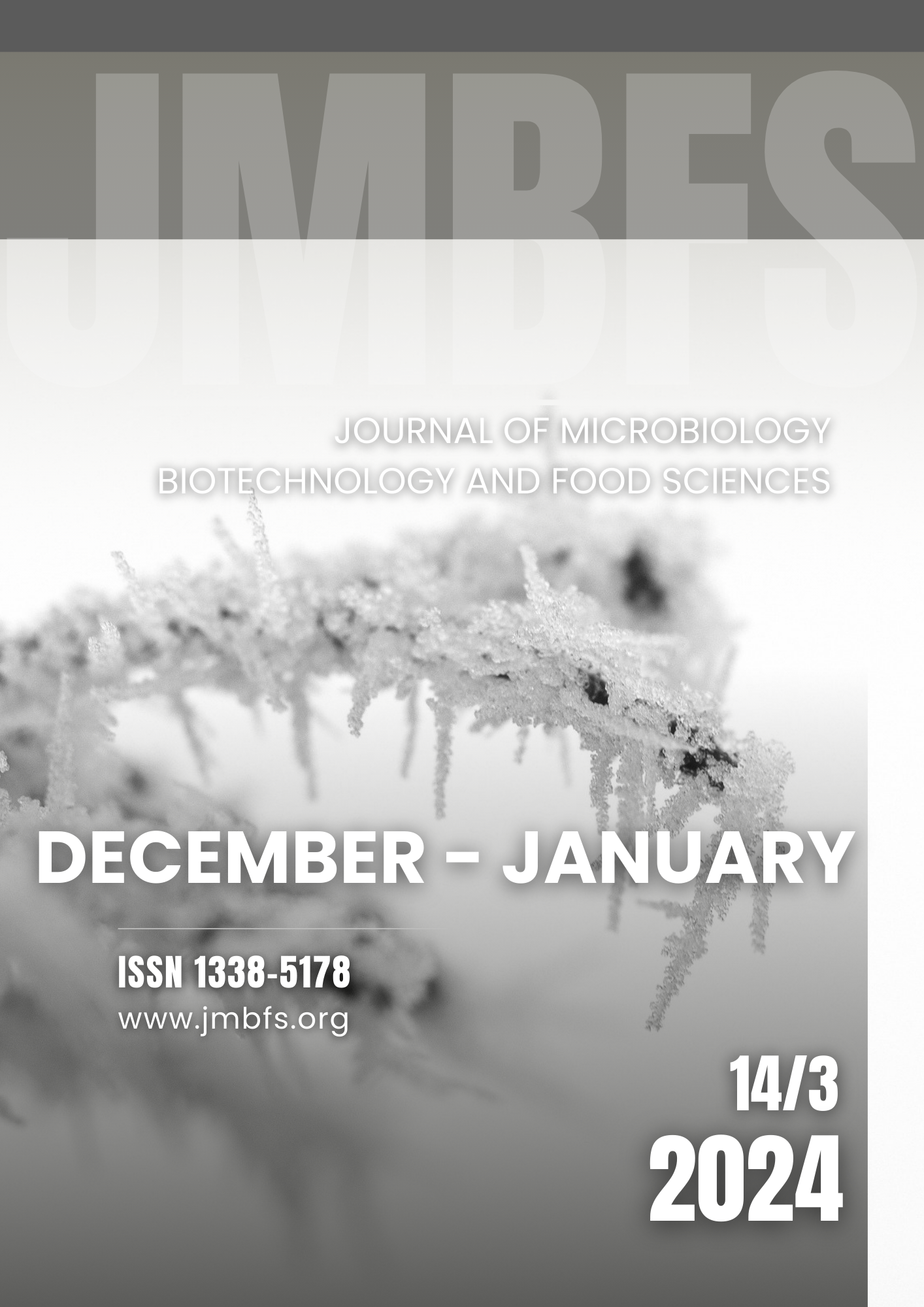Production of invertase from Penicillium spp. under solid state fermentation and its immobilization on magnetic nanoparticles
DOI:
https://doi.org/10.55251/jmbfs.10595Keywords:
Invertase, Fruit waste, Solid state fermentation, Penicillium spp., Magnetic nanoparticle, ImmobilizationAbstract
Invertase is an industrially significant enzyme that catalyzes the hydrolysis of sucrose into glucose and fructose. The present work aimed to produce invertase from Penicillium spp. under solid-state fermentation, utilizing banana peel waste as the substrate, and to characterize and immobilize the enzyme using chitosan-coated magnetic nanoparticles. The partially purified invertase was obtained via ammonium sulfate precipitation. The stability of crude, partially purified, and immobilized invertase was assessed for various parameters such as pH, temperature, thermal stability, metal ions, and chemical inhibitors. Invert syrup was produced via continuous bioconversion. The optimal incubation period for invertase production was observed to be four days, resulting in a maximum invertase activity of 75 U/ml. The maximum activities of the crude and partially purified invertase were observed at pH 6, temperature 50°C, and metal ion KCl, while the chemical inhibitor EDTA enhanced the activity. Partial purification of the crude invertase with 70% ammonium sulfate yielded 49 U/ml, and immobilization on chitosan-coated magnetic nanoparticles resulted in a 59.01% immobilized yield. The maximum immobilized invertase activity was observed at 70°C, and the immobilization procedure did not significantly influence pH, metal ions, or chemical inhibitor activity. Invert syrup production via continuous bioconversion resulted in an enzyme activity of 31 U/ml. This study highlights the potential applications of invertase in the food industry, pharmaceuticals, confectionaries, and related fields.
Downloads
Downloads
Published
How to Cite
Issue
Section
License
Copyright (c) 2023 KACHCHHAVA BHARATBHAI, Sneha Trivedi

This work is licensed under a Creative Commons Attribution 4.0 International License.
All papers published in the Journal of Microbiology, Biotechnology and Food Sciences are published under a CC-BY licence (CC-BY 4.0). Published materials can be shared (copy and redistribute the material in any medium or format) and adapted (remix, transform, and build upon the material for any purpose, even commercially) with specifying the author(s).





